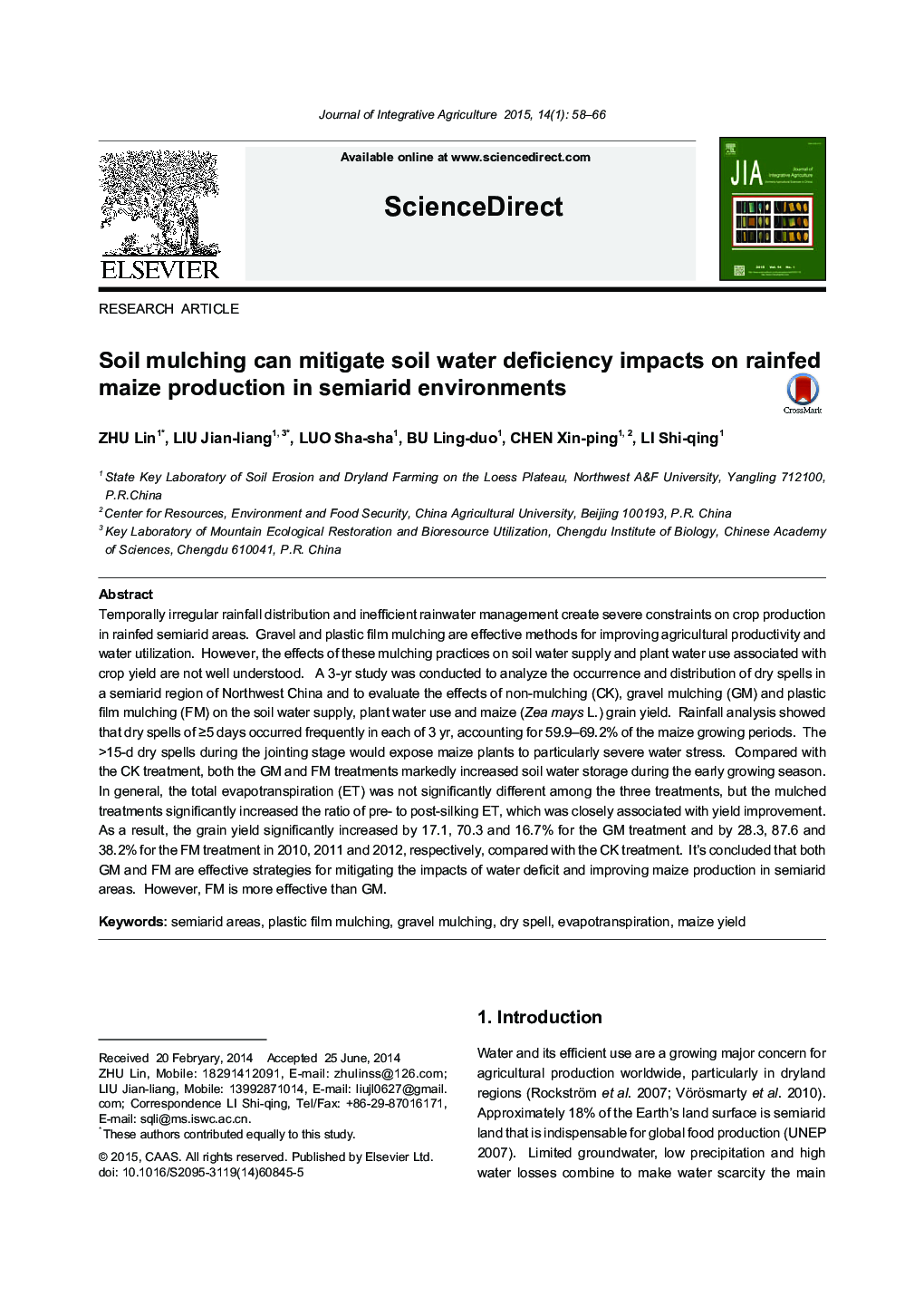| کد مقاله | کد نشریه | سال انتشار | مقاله انگلیسی | نسخه تمام متن |
|---|---|---|---|---|
| 4494408 | 1318713 | 2015 | 9 صفحه PDF | دانلود رایگان |
Temporally irregular rainfall distribution and inefficient rainwater management create severe constraints on crop production in rainfed semiarid areas. Gravel and plastic film mulching are effective methods for improving agricultural productivity and water utilization. However, the effects of these mulching practices on soil water supply and plant water use associated with crop yield are not well understood. A 3-yr study was conducted to analyze the occurrence and distribution of dry spells in a semiarid region of Northwest China and to evaluate the effects of non-mulching (CK), gravel mulching (GM) and plastic film mulching (FM) on the soil water supply, plant water use and maize (Zea mays L.) grain yield. Rainfall analysis showed that dry spells of ≥5 days occurred frequently in each of 3 yr, accounting for 59.9–69.2% of the maize growing periods. The >15-d dry spells during the jointing stage would expose maize plants to particularly severe water stress. Compared with the CK treatment, both the GM and FM treatments markedly increased soil water storage during the early growing season. In general, the total evapotranspiration (ET) was not significantly different among the three treatments, but the mulched treatments significantly increased the ratio of pre- to post-silking ET, which was closely associated with yield improvement. As a result, the grain yield significantly increased by 17.1, 70.3 and 16.7% for the GM treatment and by 28.3, 87.6 and 38.2% for the FM treatment in 2010, 2011 and 2012, respectively, compared with the CK treatment. It's concluded that both GM and FM are effective strategies for mitigating the impacts of water deficit and improving maize production in semiarid areas. However, FM is more effective than GM.
Journal: Journal of Integrative Agriculture - Volume 14, Issue 1, January 2015, Pages 58-66
